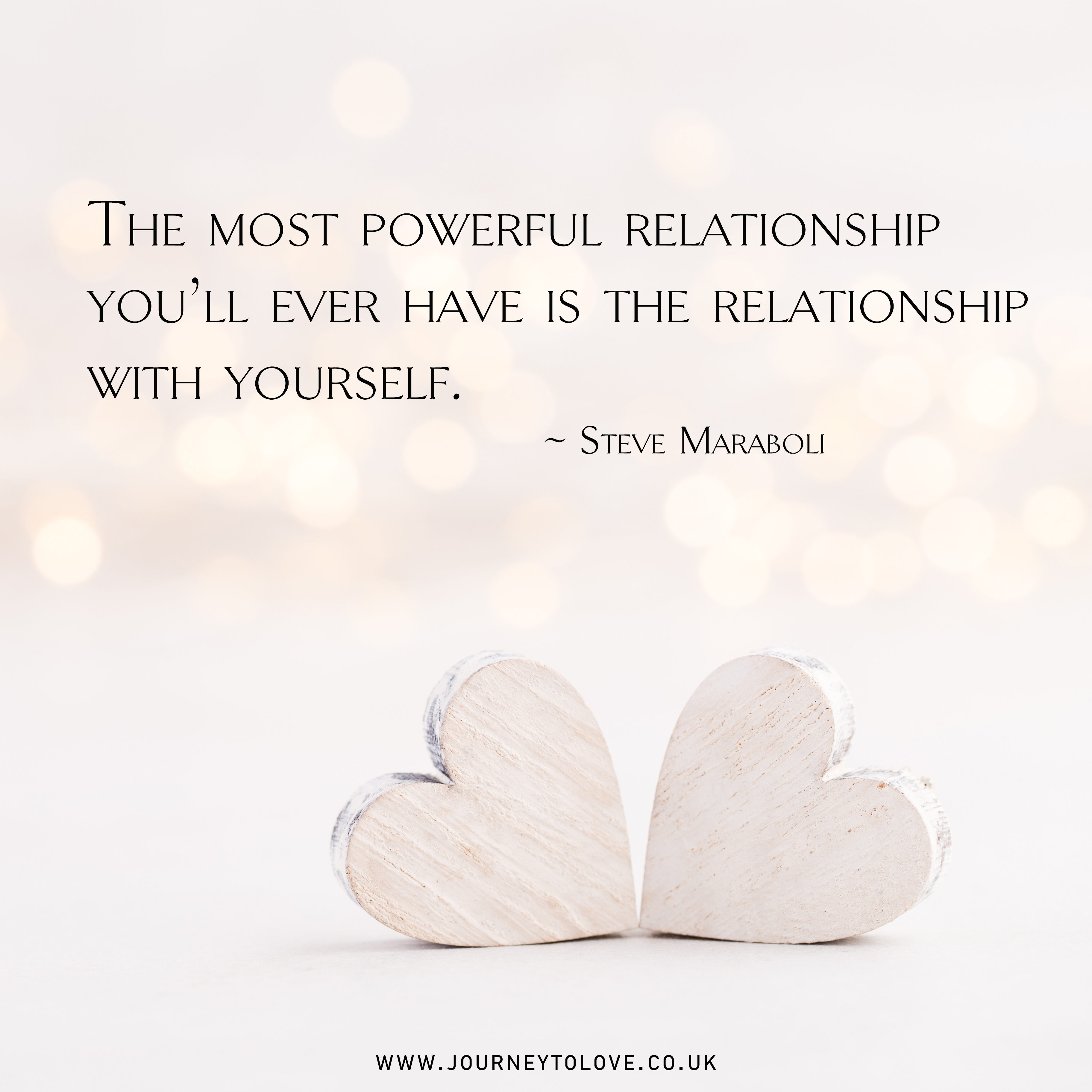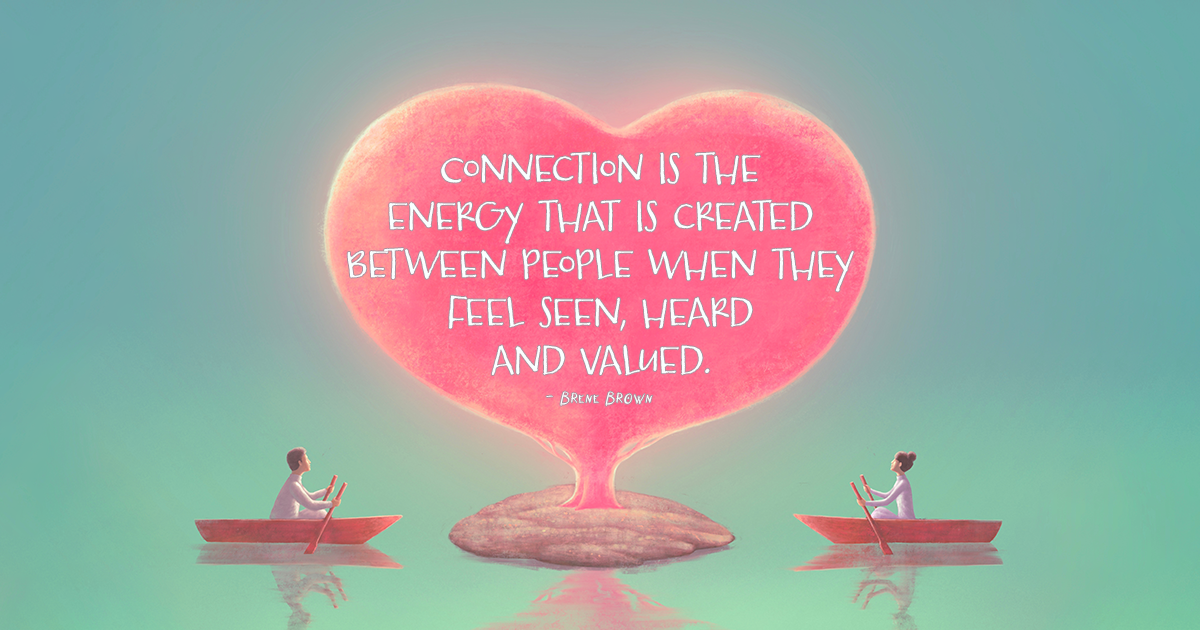The relationships we form are vital to our mental and emotional well-being. In this post, I will provide some tips that will help you become a more effective communicator and establish more positive, healthy relationships in all areas of your life.
These tips can apply to any type of relationship, whether it is with a significant other, a work colleague, a family member, or a friend.
1. Communicate authentically
Authentic communication can help build trust in a relationship. It is clear, honest, and direct. Essentially, it’s all about saying what you mean, meaning what you say and speaking your truth with compassion.
When we communicate authentically, we make sure that the other person understands our feelings and needs, and we do the same for them. For example, if someone has done something to upset us, we communicate this with them and explain our reasons for feeling this way.
We are direct in asking for what we want and need, however, rather than making criticisms or demands, we make requests, and share them in a positive way. By communicating openly and honestly, we create a space where others feel safe to do the same.
2. Actively listen
According to psychologist Carl Rogers, active listening is at the heart of every healthy relationship. When somebody is speaking to you, become fully present and give them your undivided attention. Instead of thinking about how to respond, or what to say next, mindfully listen to what the other person is saying. Make them the most important thing to you at that moment in time.
By listening deeply when someone speaks, we’re showing them that we care about what they’re saying.
3. Manage your emotions
When we feel strong emotions, we tend to react impulsively. If our emotions become overwhelming, our perception becomes distorted and we are not able to think clearly. If we communicate from this place, we may do or say things that we later regret.
To avoid this happening, make sure that you have your emotions under control before engaging in conversation. Shift your focus away from the situation that’s causing these emotions. Do something to make yourself feel better.
If you feel emotions rising during a conversation, take a step away from the situation to calm down. If that’s not possible, try to avoid reacting emotionally. Pause before responding. Take some deep breaths and focus on your body to help regain composure.
The more you practice managing your emotions, the easier it will become.
4. Show that you care
Appreciation is one of the keys to building strong, healthy relationships.
Take time to learn more about the other person. Understand what makes them happy and what is important to them. Show them that you love and appreciate them.
“THE DEEPEST PRINCIPLE IN HUMAN NATURE IS THE CRAVING TO BE APPRECIATED” ~ WILLIAM JAMES
People express and receive love in different ways. In his book, The 5 Love Languages: The Secret to Love That Lasts, Dr Gary Chapman discusses the concept of love languages. These love languages are five unique styles of communicating love. By discovering our love language, we can understand what it takes for us to feel loved and appreciated.
Here’s an overview of the 5 love languages:
Words of affirmation – People whose primary love language is words of affirmation feel fulfilled when others show appreciation for them. They will especially appreciate words of encouragement, heartfelt compliments, and hearing how much you mean to them.
Quality time – For people whose primary love language is quality time, one-on-one time is important. They will appreciate spending uninterrupted, focused time together.
Receiving gifts – For people whose primary love language is receiving gifts, thoughtfulness is important. They will prefer to express and receive love through thoughtful gifts and gestures.
Physical touch – For people whose primary love language is physical touch, physical contact is important. They like to show and receive physical affection regularly.
Acts of service – For people whose primary love language is acts of service, actions that relieve their workload are important. They feel appreciated when people go out of their way to do things for them.
I highly recommend reading this book if you’re interested in deepening your relationships with others. At the bottom of the page, you’ll find links to purchase various editions of the book (all tailored to different types of relationships), along with a quiz you can take to discover your love language.
5. Practice self-love
The most important relationship we have is our relationship with ourselves. This sets the foundation for all other relationships.
Through the cultivation of self-love, we can establish a positive, healthy relationship with ourselves. Doing this will build our self-esteem, increase our self-worth, and expand our capacity to give and receive love.
The more we love ourselves, the more we love others, and the more others love us.

Summary
Regardless of the type of relationship you have with someone, if you make a conscious effort to make them feel seen, heard, loved and appreciated it can positively transform the relationship and both your lives for the better. If you take the love languages quiz, let me know what your results are in the comments below! (My primary love language is Words of Affirmation). Please share this post if you found it helpful or know somebody who will benefit from it!



My primary love language is quality time 💖
Hi Tania! Did you expect to get that result?
Several people have contacted me directly with their results. Interestingly, none of them had Words of Affirmation, and only a couple of people had the same result! 💖
It didn’t surprise me to be honest. I think with the current Covid situation I just appreciate spending time with people when I can at the minute. Do you think our love language changes depending on where we are in our life? Maybe we should take the quiz again when things are more normal!
Yes, that’s a good idea! I believe it can change. Especially for people who are still developing. I was a very different person over a decade ago and imagine that if I did the test back then I would have had a different result.
I think the results you get also depend on your circumstances, what is going on around you and how things are affecting you. For example, if somebody is used to doing everything themselves for a long period of time, I think they could receive a high result for acts of service because they really appreciate people helping them out. And then if they start having somebody regularly supporting them, maybe their love language could change. But maybe the result isn’t actually representing their love language, but their high need for support.